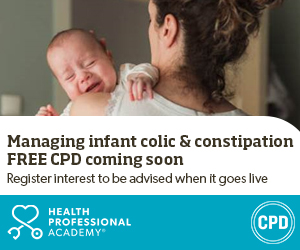An autism spectrum disorder is a neurological and developmental disorder that affects a person’s ability to communicate, interact with others, and process information. There is no one-size-fits-all for people with ASD, as each experiences symptoms differently. While some people with ASD may be nonverbal, others may speak fluently but have difficulty with social interaction.
Most people with ASD need specialized educational and behavioral intervention early. There is no medical cure for ASD, but treatments and therapies can improve symptoms and help people with ASD lead fulfilling lives.
If you or your child has just been diagnosed with autism spectrum disorder (ASD), it’s normal to feel a range of emotions. You may feel relieved to finally have a diagnosis and explanation for your or your child’s symptoms. Or you may feel overwhelmed, worried, or even angry about the diagnosis.
Here are some tips that may help you cope with a diagnosis of ASD:
Educate Yourself About ASD
When you receive a diagnosis of ASD, it’s essential to educate yourself about the condition. This will help you understand what to expect and how to best support your child or loved one. Many resources are available, including books, websites, and support groups. Parents can benefit from visiting www.autismparentingmagazine.com for reliable information about ASD. You can learn about treatments, find helpful tips for parenting a child with ASD, and connect with other parents. You can also learn about early intervention services and educational programs to help your child reach their full potential.
It’s also important to remember that people with ASD are individuals. Just as every person is unique, so is each individual’s experience with ASD. What works for one person may not work for another. It’s vital to tailor interventions and support to meet the specific needs of each person with ASD.
Find a Doctor You Trust
Not everyone is comfortable with the diagnosis of ASD. Finding a doctor you trust and feel comfortable with is crucial if you have doubts about the diagnosis.
Finding a doctor familiar with ASD who can offer treatment and services guidance is also essential. You may want to ask for recommendations from other parents or support groups.
Ideally, you should find a doctor who is part of a multidisciplinary team that includes therapists, behavior specialists, and educators. This team can provide comprehensive care for your child or loved one with ASD.
Advocate for Your Child or Loved One
Advocating for your child or loved one with ASD is essential to ensure they receive the best care and services.
You may need to advocate for your child at school, for example, to ensure they receive the resources and support they need to succeed. You may also need to advocate for your child with doctors and therapists to ensure they get the necessary care.
Accept Help
It’s important to accept help from family, friends, and professionals after receiving a diagnosis of ASD. This help can come in many forms, including financial assistance, respite care, transportation, and emotional support.
Don’t be afraid to ask for help when you need it. This will allow you to focus on caring for your child or loved one and yourself.
Seek Support
You need to seek support from family and friends after receiving a diagnosis of ASD. Talk to people who will understand and can offer helpful advice.
Many online and in-person ASD support groups are available if you don’t have a support system. These groups can provide information and connect you to other parents and caregivers with similar challenges. They are also a great way to find local resources, such as therapists and doctors specializing in ASD.
Take Care of Yourself

While you need to take care of your loved one, you must also take care of yourself. This is especially important if you’re a parent of a child with ASD. Caring for a child with ASD can be emotionally and physically draining. It’s vital to make time for yourself, even if it’s just for a few minutes each day. Exercise, eat healthily, and get enough sleep.
Finding a support system to help you through tough times is also essential. This can include family, friends, online support groups, or therapy.
Receiving a diagnosis of ASD can be difficult, but it’s important to remember that there is hope. You can deal with the challenges by learning about ASD, seeking support, and finding a doctor you trust. Advocating for your child or loved one and taking care of yourself are also vital. With the proper support, you can make a difference in the life of your child or loved one with ASD.








